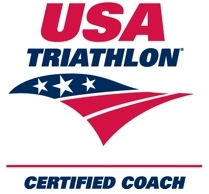
You Could Try One
How We Learn
Swim
Bike
Run
Open Water Swims
Warmup/Cooldown
Wetsuits
Tech Wear & Tri Suits
Rules
Stretching
Strength Training
Nutrition Basics
Losing Weight
Nutrition For Athletes
Race Nutrition
Race Lengths
Training, Tapering
Cramps
Creaky Knees
Gadgets
Running Shoes
Gear Checklist
Race Day
Picks & Pans
Warning Label
Marathon (the song)
Also Try Feldenkrais
How We Learn
Imagine you’re going to be living in the middle of a forest, and in every direction you look it’s shrub and bramble. You’re going to have to be able to move about, but you don’t have a machete or anything to clear brush with. However, you do have a magical elf standing behind you, and you discover that as you push through the thicket he follows behind and does a quick cut or two to clear the path. So the next time you take that path you’ve created, it’s a little easier. By the hundredth time the “path” is now paved and ready for speed. And the only drawback is that the elf is stupid. If you go in a direction you regret and announce, “Well, that was a bad idea.” The elf isn’t listening. He’s still going to improve the path. And the problem then is that the next time you’re out in the woods you’re liable to mistake that path for a good idea. And when you once again go down it, the elf will be right there with you, clearing even more of the brush. Making it even more inviting for the next walk.
Skills
Would you believe swimming and running are skills that need to be mastered. I guess swimming is obviously a skill, but most people assume they know how to run well. I would disagree. Becoming a truly efficient runner takes some serious effort. Biking also takes some skill, but less so. If you're set up properly on your bike and locked into those peddles, there's only a little you can do wrong in your motion.
Myelin
To make the most of your efforts, it helps to understand a little about how your brain learns. When attempting a new activity a few new connections between neurons may be required, but what takes you from novice to expert is the myelin sheathing that gets wrapped around nerves each time you practice. The myelin improves the nerve’s ability to transfer impulses, and as a result the behavior that particular nerve supports can become more precise and quick. But, like that elf, the oligodendrocyte cells that build the myelin sheathing are stupid. They respond to whatever you do. So here’s the first important lesson we can glean from this. If you practice doing something poorly, you will get very good at doing it poorly. However, if you practice doing something really well, you can get very good at what you’re doing. Another important understanding is that the neural pathway which governs a movement does not care whether you do it fast or slow, you’re always using the same pathway. If you do a movement slowly, the myelin gets reinforced. If you do a movement quickly, the myelin gets reinforced. However, if you do a movement quickly and sloppily the myelin gets reinforced for a sloppy movement complete with errors. Have you ever been practicing a movement and made a mistake? Have you noticed that from then on it’s increasingly possible to make the same mistake? To go down that same path? And each time you make the mistake, it gets harder to eliminate. Each time you fired that wrong neuron, the myelin got reinforced, and it doesn’t just go away because you realize that choice is wrong. In time, if not used, a myelin pathway can deteriorate, become once again overgrown with brush, but it doesn’t happen overnight. Best not to create it in the first place.
So we can now describe our goal when exercising: to consistently do the movement well, correctly, smoothly. We also know that it doesn’t hurt to begin slowly. The speed we crave will come later. In the beginning, go for quality of movement. Especially in the water I find that when I go slower I have time to focus on all the little technicalities that make up good swimming.
We also know that paying attention helps learning. What music should you listen to on your runs? You shouldn't. I know, it really can kick up your enthusiasm. But the technical word for it is "distractor." Something which interferes with the brains ability to focus and learn. Your focus should be on your movement, going through the litany of all you know about proper running or swimming and making sure you're doing things correctly.
Embrace learning. You might actually enjoy the sense of mastery that can follow.